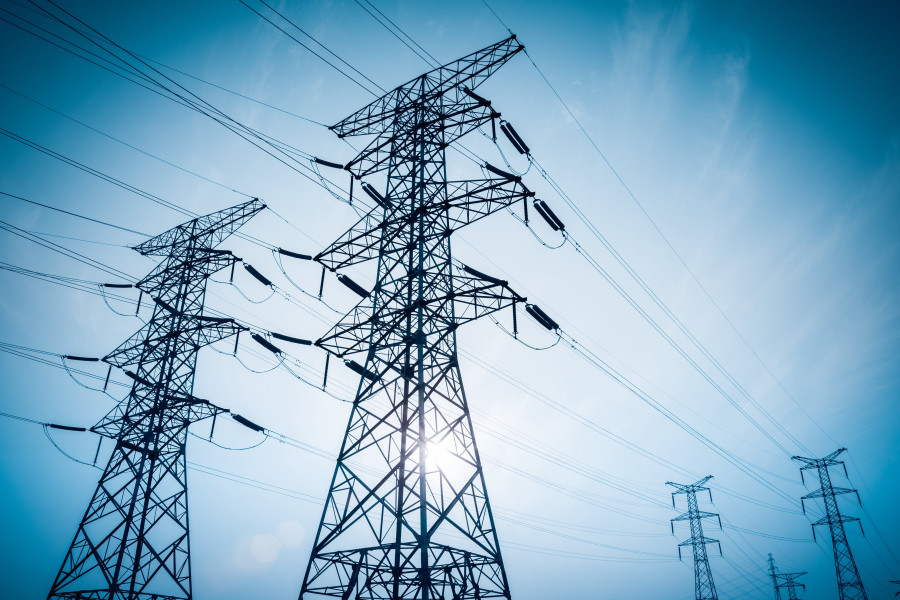Money
Energy Minister Bhusal for lowering power tariffs for the poor and industries
Price adjustment is possible due to reduced purchase prices, says former managing director of the state power utility.
Prithvi Man Shrestha
Energy Minister Pampha Bhusal on Monday said the government would prioritise increasing the domestic consumption of electricity by offering power at lower prices. The announcement comes amid concerns about the potential wastage of energy after three of the six units of the 456MW Upper Tamakoshi Hydropower Project started producing electricity.
Nepal's peak demand for power was 1400 MW, while the total installed capacity of the power projects was 1369 MW during the first half of the current 2020-21 fiscal year, according to the Nepal Electricity Authority.
With the addition of 456MW to the national grid, the country will have surplus energy technically, particularly during the rainy season when power plants operate at their full capacity.
Earlier this month, electricity generated by Upper Tamakoshi’s one of the six turbines, each of which produces 76MW electricity, was connected to the national grid.
Now three turbines are generating electricity and the power has been connected to the national grid, according to Bigyan Prasad Shrestha, chief executive officer of the Upper Tamakoshi Hydropower Project.
If Nepal is unable to increase domestic consumption or export excess power, the electricity will be wasted.
During an interaction with journalists on Monday, Minister Bhusal said that even though she agrees that surplus energy should be exported, her priority, for the time being, will be to increase domestic consumption from a strategic point of view.
For this, she said she was considering providing electricity free of cost to the people who fall below the poverty line and reducing power tariffs for industries.
“We are also doing homework for providing electricity free of cost to the people below the poverty line,” she said during the press meet. “I am also in favour of providing electricity to industries at cheaper prices.”
The private sector has been demanding that the electricity charges be lowered to reduce their cost of production and make their products competitive in the domestic and international markets.
Not as a general long-term policy but to support the people and industries affected by the Covid-19 pandemic, the government has announced certain incentives through the budget for the current fiscal year 2021-22.
As per the budget announcement, electricity demand fees for certain industries and power tariffs of households that use up to 20 units per month will be waived for the period of the prohibitory orders.
Likewise, households consuming up to 150 units per month will get a 50 percent waiver and those consuming up to 250 units per month will get a 30 percent waiver in their electricity bills for the period of the prohibitory orders. The demand fee will also be waived for manufacturing industries, hotels, and cinemas for the period of the prohibitory orders, according to the budget announcement.
Bhusal said she wants to increase the consumer base and consumption of electricity.
“Boosting domestic consumption with increased use of electricity in kitchen and industries, and promoting electric vehicles are other measures for increasing the domestic use of electricity,” the minister said.
In March, the Nepal Electricity Authority awarded a contract for installing 50 charging stations for electric vehicles in several locations of the country to promote electric vehicles.
Kul Man Ghising, former managing director of the authority, said that the state-owned electricity utility should reduce power tariffs to promote consumption.
“The average cost of purchasing electricity for the Nepal Electricity Authority has been decreasing along with the reduction in the price of electricity generated by old hydropower projects like the 60MW Khimti Hydropower Project,” he said.
According to him, the price to be paid to Khimti came down to around Rs700 million last fiscal year from around Rs5.7 billion in the earlier fiscal years.
At present, the Nepal Electricity Authority pays hydropower projects Rs8.4 per unit during the dry season and Rs4.8 per unit during the wet season for their electricity. And it sells the electricity at an average rate of Rs 10.62 per unit to household consumers and industries.
“We can make downward adjustment of prices for consumers in line with the reduced cost of power generated by hydropower plants,” Ghising said.
He also said the cost of electricity can be brought further down with efficient management of the authority.
“Without efficient management, operation and maintenance costs rise leading to financial losses, thus making it impossible for the authority to lower the prices,” Ghising said.
Ghising reckons electricity consumption could be increased in the areas of cooking, heating, and cooling by lowering prices.
“We can promote the use of electric ovens in our kitchen. There is also a lot of scope for boosting industrial demand by increasing the capacity of substations and reducing night-time prices of electricity to support irrigation projects,” said Ghising.
Between 2007 and 2017, the country went through a massive electricity supply shortage that caused up to 18 hours of daily load-shedding, which proved costly for the country's economy.
According to a World Bank report, reliable power supply would have increased the country's annual gross domestic product by almost 7 percent, and annual investment would have been 48 percent higher.




 8.54°C Kathmandu
8.54°C Kathmandu














